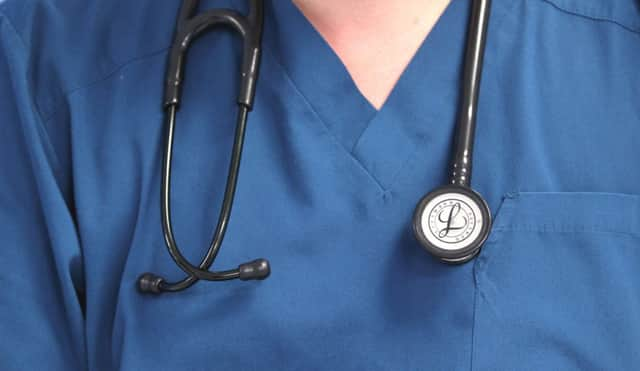Leaders: Imported ideas no less healthy than our own


The problem of lack of availability seems to occur when local GP surgeries are not open, either at night or at the weekend or during holiday periods, especially at Christmas and New Year. Thus the review of out-of-hours GP care announced by health secretary Shona Robison will be welcomed by many.
Most people are inclined to attribute the apparent lack of GP care availability to the transfer a decade ago of responsibility for out-of-hours primary care from GP practices to health boards. Many people, faced with a condition or injury needing treatment but no locally available GP, have assumed that A&E is their only option.
Advertisement
Hide AdAdvertisement
Hide AdThe fact that this change coincided with a big GP pay rise, which also seemed to mean they had less work to do, rankles with many, especially shift workers, those on weekend call, or those whose working conditions and pay have deteriorated because of the recession.
The review may find that this is indeed a cause of the growing pressures on A&E departments, but the more likely reality is that there are many causes. One is the pressure on beds in hospital, where a problem is often the delay in finding care or nursing home beds for elderly patients. It means that A&E departments have no beds to which patients needing in-hospital treatment can be moved, leaving many of their patients occupying space needed for the queue at the reception desk.
FOLLOW US
SCOTSMAN TABLET AND MOBILE APPS
Another is an increasing tendency for people to seek the best diagnosis of what is troubling them, even if it is minor. Where previously they might have taken an over-the-chemist’s-counter medication for a headache or an upset tummy, now there is a tendency to seek reassurance from a hospital doctor that there is no brain tumour or stomach ulcer.
Hopefully, the review will not just identify the causes but also recommend ways of dealing with them. This should include identifying practices elsewhere, perhaps in continental Europe, but also south of the Border, which are effective. Scottish ministers and health service practitioners should not be so proud as to insist on inventing a Scottish treatment wheel when there is a perfectly serviceable one available in England.
For example, the relatively new Queen Elizabeth hospital in Birmingham has one of the most efficient systems in the country where an A&E operations room – not for surgery, but for managing the flow of patients – seems highly effective. Still more purposeful may be various initiatives to get people seen and treated at home rather than clogging up A&E. When England has tested ideas, Scotland can pick the best.
Artistic greatness is still a business
‘A BUSINESS to run …squeezed budgets … an overflowing to-do list” – this corporate misery-speak is not what you expect to hear from a new director of the Edinburgh International Festival. Hyperbolising about the brilliance of artistic achievement to come and the genius of performance directors to which audiences will thrill is surely what is demanded.
But Fergus Linehan, who took over the running of the greatest arts show on earth in September, seems grounded in gritty reality. Putting on the three-week Festival spectacular does require money. Previous directors have done their job in delivering larger audiences and more ticket revenue, but that’s not enough. His words must wryly echo what he has heard from the sponsors.
Public funding has been stationary at about £5 million a year and a request for extra money has been rejected by Creative Scotland. Taking inflation into account, public support has actually gone backwards, and may do so even faster if Edinburgh City Council cuts its grant as is rumoured may be possible.
Advertisement
Hide AdAdvertisement
Hide AdRetaining the international top spot is getting increasingly difficult as other cities and localities around the world latch on to the idea that an arts festival is not just a great way to nurture, display, and promote creative talent, but a terrific means of selling the idea that yours is a vibrant, dynamic, exciting place to visit, or maybe even reside.
As any practiced user of corporate talk will tell, businesses which are at the top of their game need to work as hard to stay there as they did to get there, and that means investment. Mr Linehan’s words are to be heeded if we are indeed series about maintaining Edinburgh’s position.